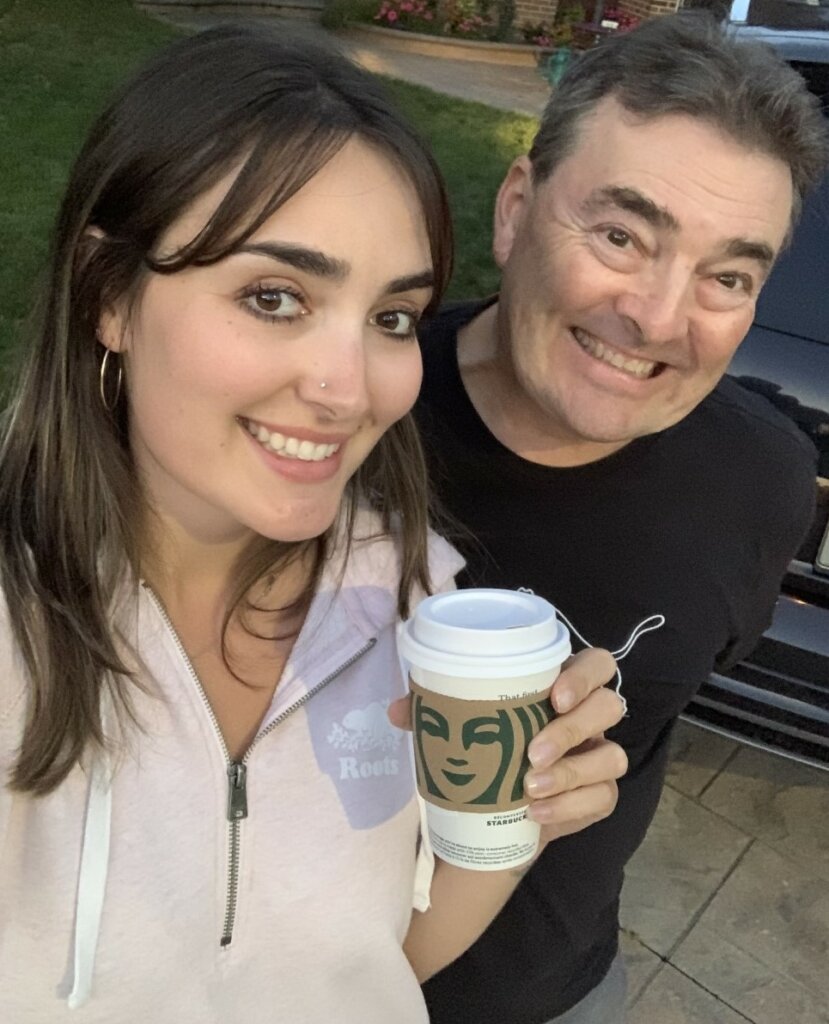
For The Love of Life
Michaela Keech was born and raised in the beautiful city of North Bay, Ontario.
“I am most proud of my nursing degree. That has opened a phenomenal kind of door for me. I honestly like what I do!” she advocates.
She currently works as a hospital care coordinator, with home and community care support services in Ontario. Her specific role handles all discharge planning and long-term care applications; she helps patients transition from hospital to home and facilitates nursing care, PSW’s or physiotherapy.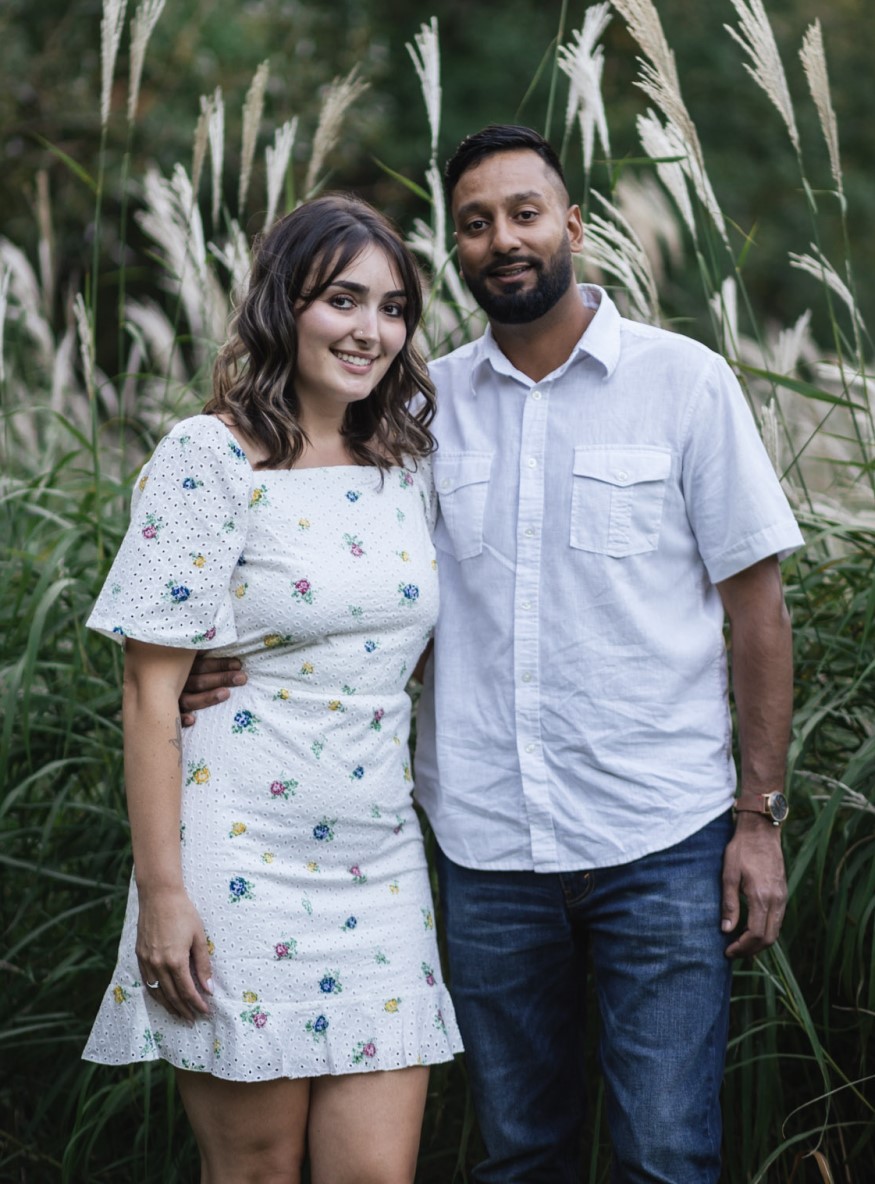
“I went into nursing because I like taking care of people. It gave me first-hand experience of how difficult life can be, especially when going through a difficult healthcare scenario if you don’t have the correct support in place,” she expresses.
For the last three years, she and her boyfriend Kulbir Singh had been living in the Woodbridge-Vaughan area.
Michaela had consulted her doctor because she was experiencing hearing problems, such as noise sensitivity, as well as things overall not seeming quite normal to her. Although the results of the hearing test seemed fine, her difficulties persisted.
“I worked and had a “normal” life down there, but that changed on July 20, 2022, after having an MRI,” she remembers.
Because she experiences claustrophobia, she was understandably apprehensive to have the procedure, but is very thankful she had.
“I remember getting it on a Wednesday when I was at work. I literally walked downstairs and had the scan at the hospital,” says Michaela.
Her journey began two days later, on Friday July 22nd.
That day, she had planned a road trip out east to begin her summer holidays.
“I was going to have two weeks off. That got all blown out of the water when I received the news that day. I read the report and freaked out! The scan revealed that I had a brain tumour. I didn’t know what to think, and I don’t remember the exact details. I just remember screenshotting the information that I just read, and I sent it to my dad first. I asked him, ‘Does this say what I think it says?’ It was a hard couple of weeks,” she states.
Given the size of the growth, every physician appeared quite shocked that Michaela didn’t exhibit more symptoms. They felt she had the condition for a long time; it must have been slow in growth, adapting her brain and senses around the tumour.
The tumour was at the back of her head and attached to the cerebellum. It had grown to the breaking point and needed to come out.
Michaela had an appointment with a neurosurgeon at Sunnybrook Hospital in Toronto, who explained the benefits and risks of the operation.
In the few weeks between July 22nd and her surgery on September 13th, she was plagued with uncertainty as to what would happen, and if the tumour was non-malignant or cancerous. 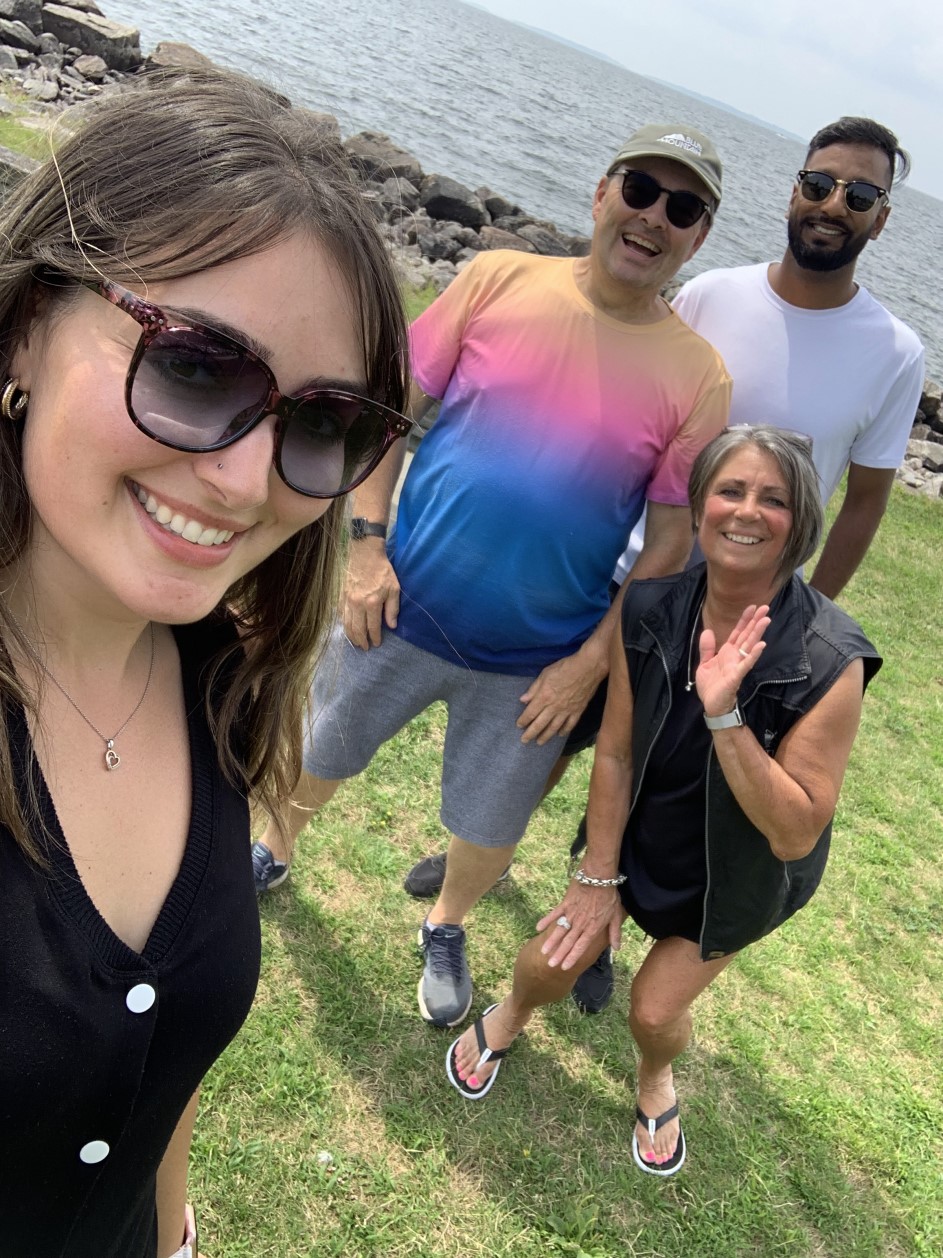
“My tumour was biopsied, and thankfully ended up being a non-malignant pilocytic astrocytoma. I’ve learned this is common in pediatric tumours or brain cancers. It was a middle ground, that place of be thankful yet this is the worst,” she says.
“I never really confronted my mortality, and I didn’t think I was going to have to this young. It was quite eye-opening. I remember being angry, but not scared. I asked myself why this was happening.”
After her surgery, Michaela moved back to her parents’ home in North Bay and is still living there today.
“My parents and boyfriend were essentially my caretakers because the cerebellum controls coordination and mobility. For a good month, I was to the point where I couldn’t go to the bathroom or bathe myself independently. It was either my mom or boyfriend helping me,” she remembers.
She is extremely grateful for her parents’ and boyfriend’s amazing support. “It gave me a firsthand experience of what my patients go through if they don’t have someone to take care of them. That’s kind of been my biggest driving force throughout this whole thing. As horrible as this whole experience was, it’s helped me become a better nurse and healthcare professional. I have the energy, gumption and have had the chance to,” she asserts.
Her parents, Tim, and Cindy Keech, have five of the most lovable, sweetest dogs ever.
“Jazzy and Strudel are the miniature dachshunds, Kobe and Chaney are Dobermanns, and Cardi is the coonhound. The big three have all been rescued and they are all adorable,” Michaela smiles.
“It’s been a dream in that sense. Since I’ve moved back home during my recovery, I’m never alone because they’re here.”
Post-operatively, Michaela developed vertigo, in addition to the pre-existing difficulties from the surgery. She was advised to keep her head relatively still to prevent another episode.
“Unfortunately, I still struggle with vertigo in certain positions. It’s a reminder each day. I don’t feel normal; I feel it whenever I lay down. I can’t do certain things I used to, such as my hobbies and passion for yoga. In my left hand, I struggle with a tremor and reduced grip strength. My balance isn’t all there; I can’t ride a bike or roller coaster. Basically, I can’t do anything that may trigger my vertigo again for at least a year or longer. The physicians said this could be a neurological symptom, and that’s just how it is. I also have a plate and numbness in my skull from where they went in,” explains Michaela. 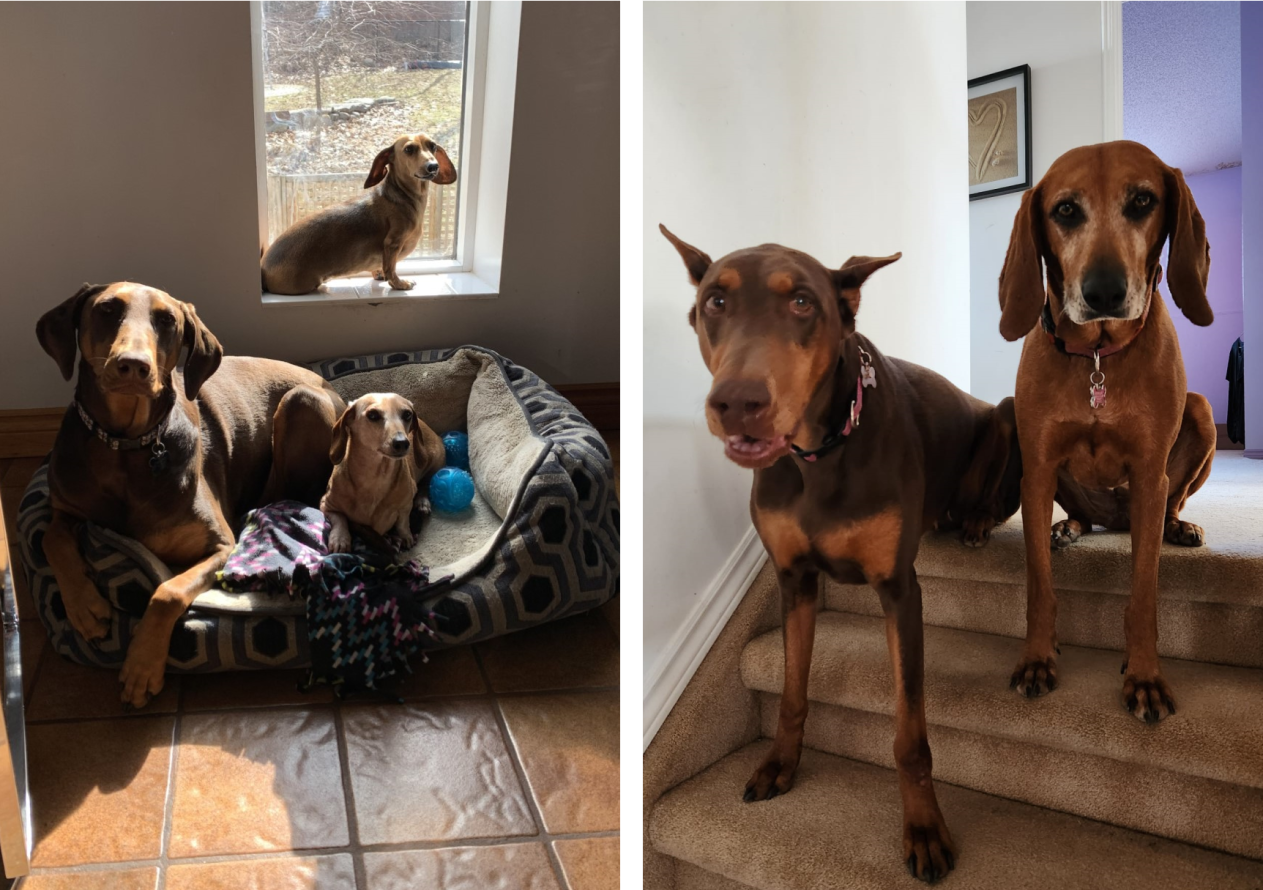
One of the most challenging things yet for Michaela were the expectations she had set for herself within a three-month timeframe. Eager to have some quality of life back, she was certain she would recover by the Christmas holidays, with a call back to work and a normal life.
These goals did not go exactly as anticipated, and she found herself to be quite frustrated.
“It has been such a blur. All I can think about is if I didn’t have the help. It would have been a nightmare because I struggled with general instability for so long. I went from a fully functional 27-year-old who works, drives, and does everyday things, to being completely dependent on people to help me survive each day of my life. Everything I used to do I couldn’t do anymore. I felt very lost in that sense, and that was a huge struggle,” she says.
Michaela has found joy in smaller and therapeutic indoor hobbies, such as puzzles, reading, and building Lego, which helps to curb hand tremors.
“I had so many goals set up for myself and would feel let down when I didn’t meet them. This whole experience has taught me that you never know what’s going to happen. That’s why I don’t like to plan too much ahead,” she explains.
“I’m focused on getting back to my normal, which is returning to work, continuing my recovery, and spreading awareness.”
Lately, she says pieces of her independence are returning to her life. She feels she has come leaps and bounds since then—in terms of walking, driving, and activities of daily living. “We don’t realize it, but these are the things we take for granted when things are all good. It has been a huge shift, and mentally it’s been a very long journey. When you are sick, nothing else matters—and it’s true. When I get frustrated with things or unable to do something, I always think of that. It’s a shocking reality check, as I feel a whirlwind of negative physical and mental emotions. I think, if I only had a year to live, would I be getting upset about this? If I only had so much time, would I be getting upset about this or in the grand scheme, does it really matter?” she ponders.
Michaela desires to have children in the future, but major concerns for her during that time was the prognosis of her astrocytoma and starting chemotherapy.
“In my case, my inspiration is very personal. I love both my parents and they have been great, but I’m a daddy’s girl! I feel like no matter how old I am, he’s my first go to person. He was the first person that I contacted when I received the terrifying news. Dad drove me to appointments, bought the Legos for me, and helped to keep me motivated when things were horrible,” she expresses appreciatively. 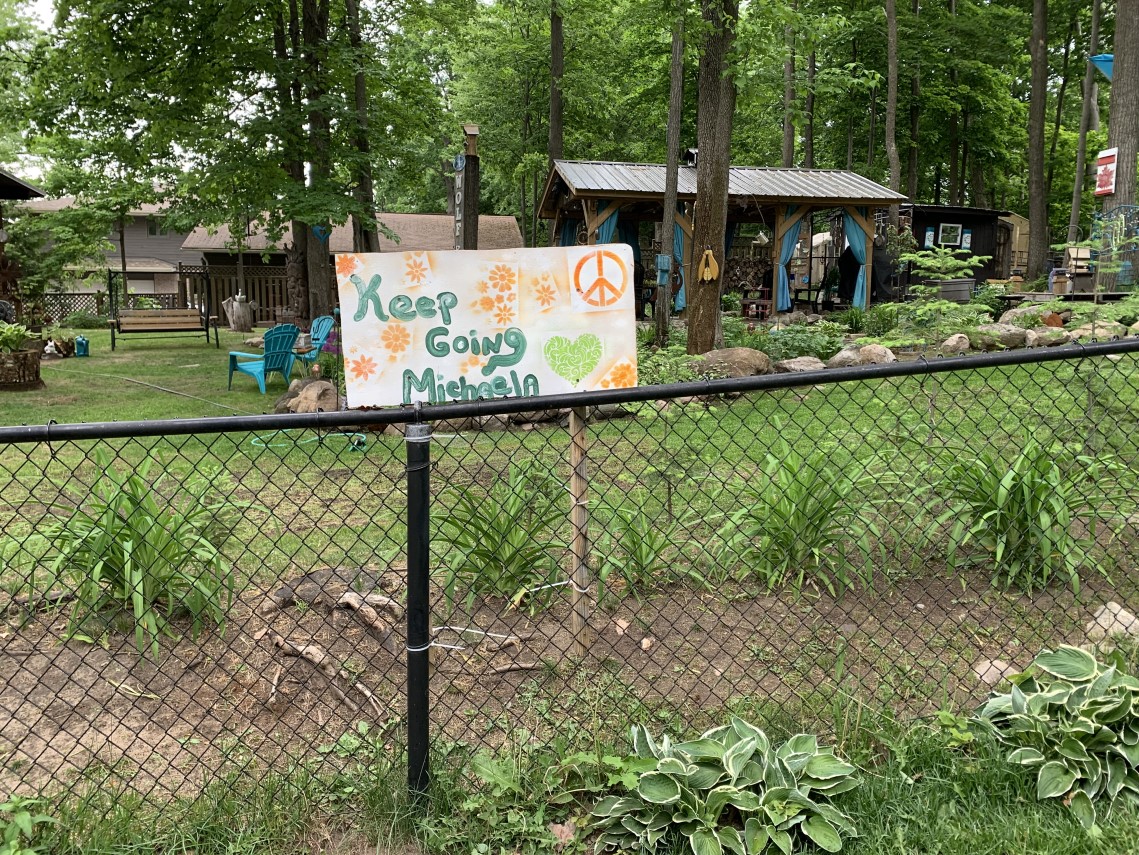
Having never met anyone who had a brain tumour prior to her diagnosis, Michaela describes her journey as eye-opening.
“It’s like I said, you never know what’s going to happen next in life. It reinforced the need to have a support system consisting of people who care about you. When you do face a hard time, it’s difficult to go at it alone. I am making the most of my current physical status. The main things I notice which are constant reminders are my hand tremors. I am still very light and noise sensitive. I hope with time that the triggers for headaches fade away,” she states.
“Overall, I am doing better and that I am regaining some quality of life.”
Michaela was connected to Brain Tumour Foundation of Canada shortly after her diagnosis.
“I did the thing everyone tells you not to do; I started Googling and came across the foundation that way. I was pleasantly surprised with how user friendly the website was, and how friendly the staff are themselves,” she says.
She immediately knew she wanted to give back. The foundation gave her that outlet.
Having met with the mayor of North Bay, Michaela persuaded him to declare May as Brain Tumour Awareness Month via social media. She promotes awareness through initiatives and planning walks. Having reached out to local businesses and restaurants, they agreed to create a dish, drink, or product, where a portion of the proceeds are donated to Brain Tumour Foundation of Canada.
She is extremely—and justly—proud of this accomplishment.
“I feel it’s my calling because I’ve always been a strong advocate for so long. That’s why I work in the field that I do, and I have a channel to focus my energy on,” she gratefully voices.
Her vision of hope entails finding a positive to focus on, even when it feels like everything is going wrong. She has also realized the lack of understanding about invisible illness. 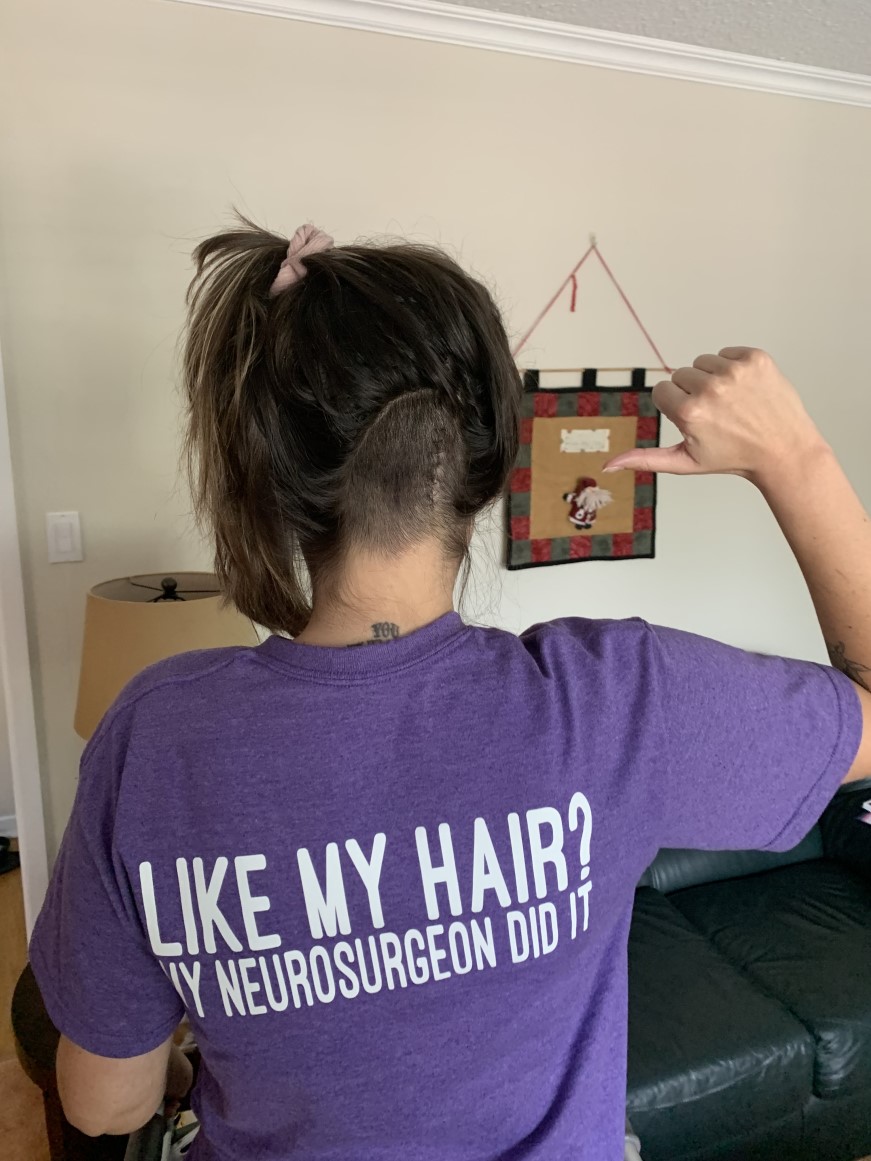
“Mine was at the back of my head. My hair is shaved there, and when I let it down, I look quite normal. I think it’s important to know that this misperception sadly does exist. There is a need to spread awareness and education, because so many of the warning signs are low key until it’s too late,” she explains.
Michaela is a firm believer that research is of the utmost importance for any disease. She feels knowledge is power.
“Bringing education and awareness will not occur if we don’t spend the time or money for research to develop. When people are comfortable, it is easier for them to be willing to share their story. They can relate in some aspect, whether it surrounds advocacy, symptoms, or facing an illness. People can connect to that, and that by itself makes people feel stronger, especially given that you don’t know how it’s going to turn out,” she says.
Michaela was pleasantly surprised when she became a part of the young adult support group with Brain Tumour Foundation of Canada and received a free guidebook in the mail.
“It was so nice to have something so easy go right along the barriers and hard times that have happened. The support group makes me feel normal during such a horrible time. I truly believe that in any given situation, that if you don’t experience it firsthand, you don’t know. It’s nice not having to explain everything when I’m talking with someone else,” she expresses.
She feels acceptance, understanding and empathy from the people she has met through the foundation and has developed many friendships; one particularly with a girl who was experiencing similar things to her.
She is also a strong believer in preventative healthcare and recommends following up with a physician immediately if there are detectable warning signs.
“Take active measures before you have an episode, or if the tumour grows too big and blocks the blood flow,” Michaela sagely advises.
Since renewing her energy and celebrating her independence, Michaela feels advocacy is a very positive investment of her time.
“Let’s talk to people and do certain things. I think the walk is a fun way to get people out, especially after being cooped up from COVID,” she encourages. 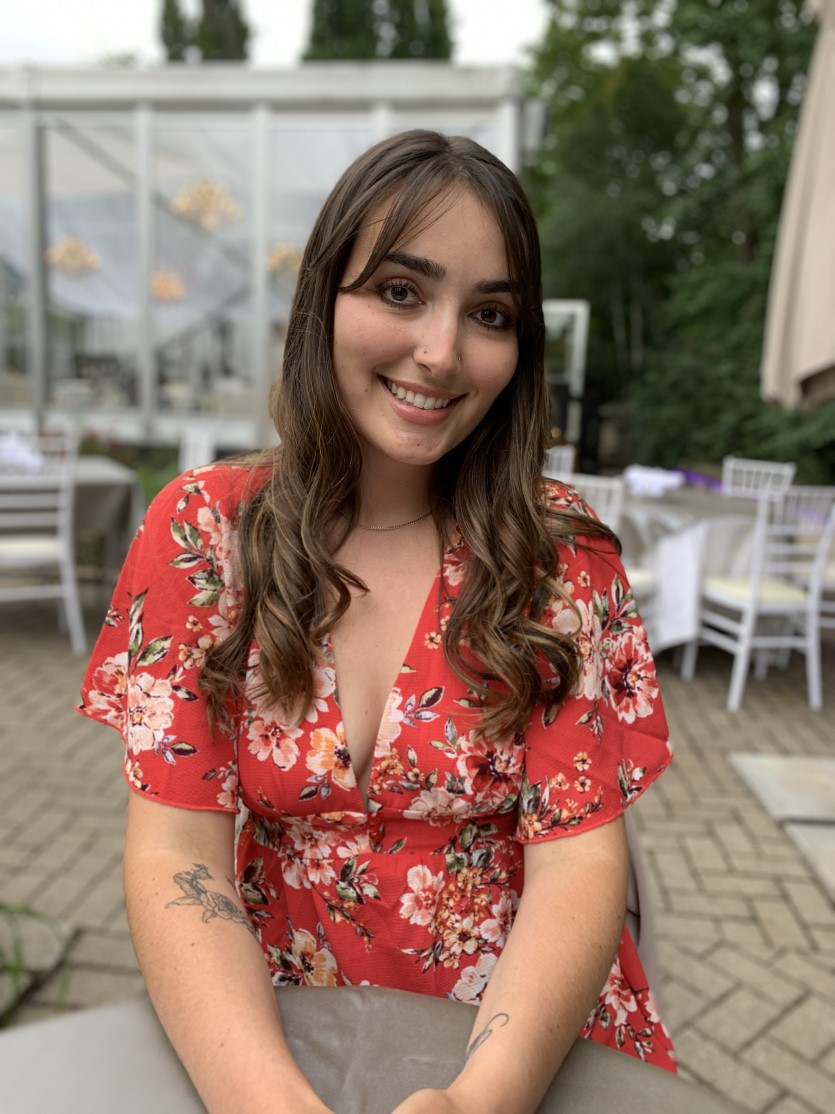
Because of her trials, tribulations and triumphs, Michaela believes the Brain Tumour Walk is a very worthy cause to focus her time and energy, rather than being consumed with worry about the unknown. “I became a member to help plan the walk here in North Bay. It’s been such a great cause and I’ve met some great people by reaching out to local businesses,” she raves.
Michaela Keech and team For the Love of Life hope to meet their goal of $5000 by the day of the walk. They have already achieved an impressive $4240!
By reaching out to family and friends, she encourages them to register and fundraise for the race.
“I have the mentality that I have been dealt these cards; I might as well make the most of it. If that means making this easier for one person, I have fulfilled my purpose and done my job. Because of my ignorance, I didn’t know about this entire aspect of life. I didn’t know what could happen, so I feel very passionate about shedding light on it,” Michaela proudly concludes.
On behalf of Brain Tumour Foundation of Canada and the brain tumour community,
Thank you, Michaela Keech and team For the Love of Life!